Bangladesh tour

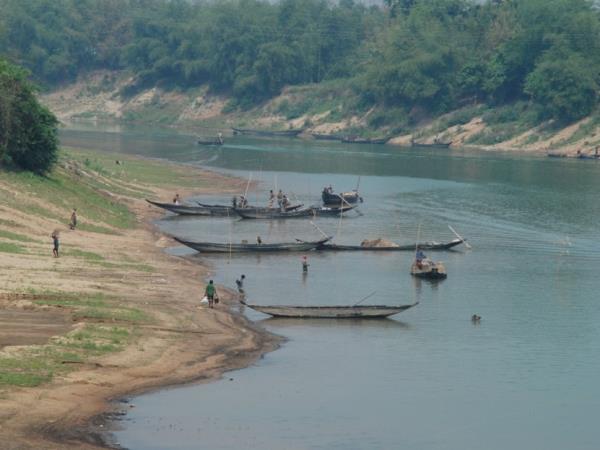
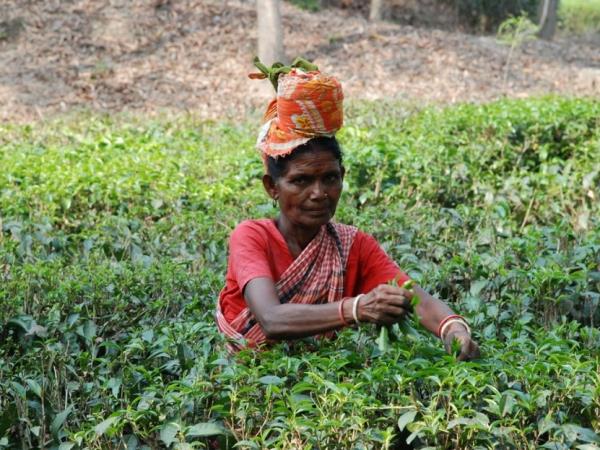
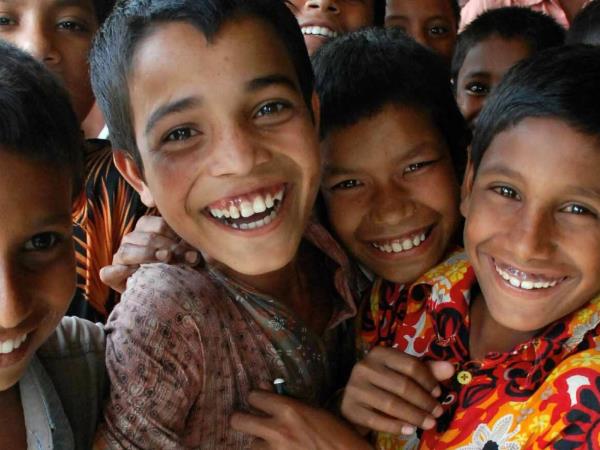
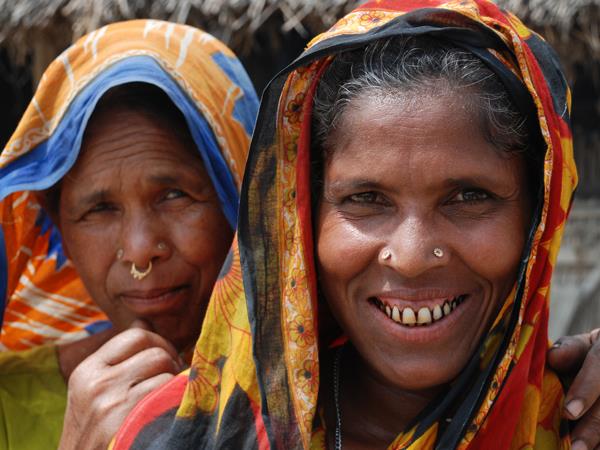
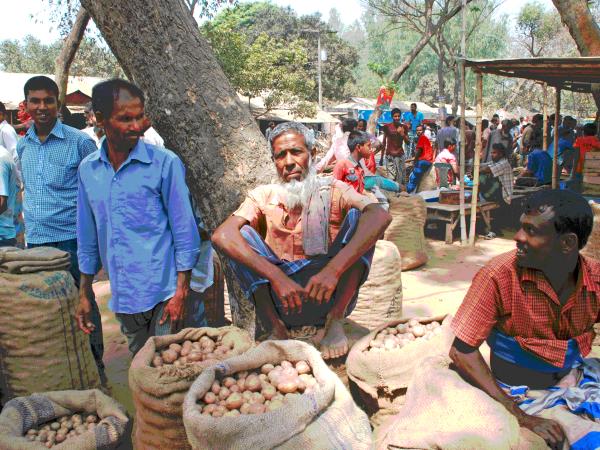
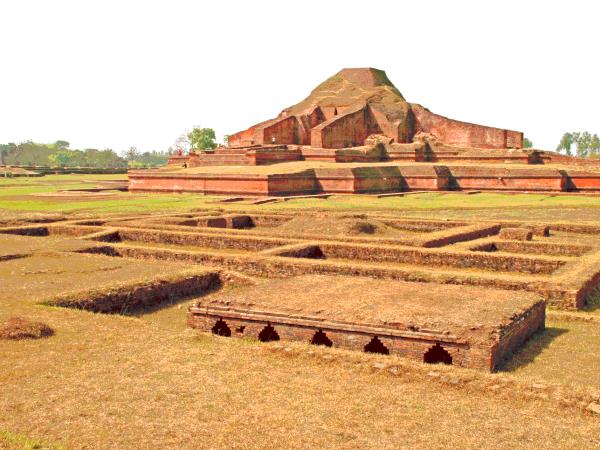

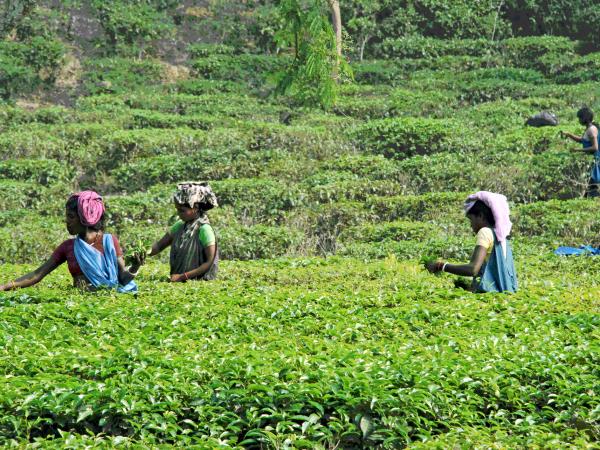
A watery wander through Bangladesh via its deltas, tigers and langurs – taking 16 days to go where other tourists don’t.
Dhaka Mongla Bagherat Sundarbans Khulna Puthia Rajshahi Paharpur Bogra Mahastangarh Srimongal Chittagong Rangamati Chittagong Hill Tracts
Price
£2649To£2699 excluding flights
Description of Bangladesh tour
Check dates, prices & availability
Travel guides
Vacations to Bangladesh take you to a low-lying land where waterways rule the way of life. The vast Padma (Ganges) and Jamuna (Brahmaputra) rivers are ...
I am a grown man, and have travelled all over Africa. But the first time I saw a tiger in the wilds of India, I cried.
Reviews
2 Reviews of Bangladesh tour
4 out of 5 stars
Reviewed on 12 Dec 2022 by David Elsey
1. What was the most memorable or exciting part of your vacation?
Dhaka, running the innumerable traffic jams on the back of a motorbike taxi.
2. What tips would you give other travelers booking this vacation?
Take plenty of Imodium with you
3. Did you feel that your vacation benefited local people, reduced environmental impacts or supported conservation?
Not particularly
4. Finally, how would you rate your vacation overall?
Curiosity now satisfied. Bangladesh is third world but efforts to upgrade is evident road-wise. Sad that the rich heritage is not considered important. However, the people are just great once you get over the shock of being a rarity and having to suffer innumerable selfies ?!?
Read the operator's response here:
Hi David,
Thank you for taking the time to share some feedback following your trip to Bangladesh.
I’m glad to hear that you enjoyed your time exploring Dhaka. It’s an exciting city and sometimes these kind of experiences are the most memorable!
I’m sorry that you felt the trip didn’t noticeably benefit local people, reduce environmental impacts and support conservation. Traveling responsibly is really important to us, and in Bangladesh, like all of our tours, we try to ensure that local people benefit from our presence. For example, we include some nights in locally run guesthouses, which provides employment for people in the remote communities that we visit. We also work with local guides and drivers to ensure that money stays within the local economy, and only include breakfast on most days of the tour so that local restaurants are able to benefit from our presence.
Sadly the Sundarbans is under threat from the encroaching human population, as well as hunting of wildlife and deforestation. Our hope is that by visiting the Sundarbans, it will demonstrate to locals that the area is worth protecting and that they can benefit economically from tourism instead. The entry fees that we pay to visit the Sundarbans all go towards conservation efforts. This also applies to a number of other sites that we visit on the tour, which don’t receive much funding from other sources.
I’m pleased that you received a warm welcome from the local people - they are known to be very friendly, and as you know, aren’t used to visitors! I hope you gained a lot from your time in Bangladesh and returned home with some fantastic memories.
Thank you again for sharing your comments and for traveling with us - it was a pleasure to help with your travel plans. If we can help with any more trips in the future, please don’t hesitate to let us know.
Thank you for taking the time to share some feedback following your trip to Bangladesh.
I’m glad to hear that you enjoyed your time exploring Dhaka. It’s an exciting city and sometimes these kind of experiences are the most memorable!
I’m sorry that you felt the trip didn’t noticeably benefit local people, reduce environmental impacts and support conservation. Traveling responsibly is really important to us, and in Bangladesh, like all of our tours, we try to ensure that local people benefit from our presence. For example, we include some nights in locally run guesthouses, which provides employment for people in the remote communities that we visit. We also work with local guides and drivers to ensure that money stays within the local economy, and only include breakfast on most days of the tour so that local restaurants are able to benefit from our presence.
Sadly the Sundarbans is under threat from the encroaching human population, as well as hunting of wildlife and deforestation. Our hope is that by visiting the Sundarbans, it will demonstrate to locals that the area is worth protecting and that they can benefit economically from tourism instead. The entry fees that we pay to visit the Sundarbans all go towards conservation efforts. This also applies to a number of other sites that we visit on the tour, which don’t receive much funding from other sources.
I’m pleased that you received a warm welcome from the local people - they are known to be very friendly, and as you know, aren’t used to visitors! I hope you gained a lot from your time in Bangladesh and returned home with some fantastic memories.
Thank you again for sharing your comments and for traveling with us - it was a pleasure to help with your travel plans. If we can help with any more trips in the future, please don’t hesitate to let us know.
Reviewed on 15 Dec 2019 by David Musson
1. What was the most memorable or exciting part of your vacation?
I suspect that Bangladesh would not generate the thought of precision But everything arrived on time and the organisation was A1. The reception we received was warm and welcoming. The range of experiences was vast and many
surprises were added to the itinerary.
2. What tips would you give other travelers booking this vacation?
Buy it and enjoy a brilliantly designed and organised trip. It ran as smooth as oil. Our guide was as good as it is possible to obtain.
3. Did you feel that your vacation benefited local people, reduced environmental impacts or supported conservation?
A very difficult question to answer. However as very rare tourists we were of great interest to the people. The four of us would each be asked for selfies maybe twenty times a day.
4. Finally, how would you rate your vacation overall?
Brilliant.
Responsible Travel
As the pioneers of responsible tourism, we've screened this (and every) vacation so that you can travel knowing it will help support the places and people that you visit, and the planet. Read how below.
Planet
This tour travels through the Sundarbans, the world's largest mangrove forest. We strive to ensure that we leave this area as we find it and that our team have been trained in strict no litter policies, meaning that we take all refuse to either be recycled or properly disposed of in nearby towns.The Sundarbans is under threat not only from the encroaching human population but from hunting and trapping of wildlife, overexploiting trees for timber and cutting and lopping trees for fuelwood and to make charcoal. Also, shrimp fry are being collected at unsustainable levels and mangrove forests are cut and cleared to make way for shrimp grow-out ponds. All of these things contribute to degradation and habitat loss. We hope that in visiting the Sundarbans, it will demonstrate to locals that the area is worth protecting and will encourage them to do so as the Sundarbans brings tourists into Bangladesh and therefore, money into the local economy. Entry fees to the Sundarbans are used towards conservation efforts.
In conjunction with our local team we work with the guesthouses, cruise boats and hotels to help them to implement best practice in terms of environmental issues, from energy conservation to waste disposal. We also help to educate local guides and drivers about how not to negatively impact upon the areas visited. Western norms with regards to this can be quite different from local concepts, so this can be a challenge but we are keen to play our part in the development of environmentally sensitive tourism within this region.
In addition, when exploring any landscapes on foot, we make sure that we stick to whatever tracks there may be.
People
As with many of the trips that we offer, this tour has a strong focus on local culture and different ethnic groups. Where possible we try to ensure that local people benefit from our presence. This trip includes some nights staying in locally run guesthouses, which provide employment for people from the remote communities we travel through, often in areas where little alternative for employment exists. We do this in Ruma in the Chittagong Hill Tracts. Ruma is home to the Bawm people and is very different to the rest of the country in the way of customs and cultures.The fact that some of these areas are relatively isolated means that it is important to behave appropriately. We do not wish to change the traditions of the people that live here – which can often be a result of mass tourism, as people become more exposed to other ways of life. We operate just one group tour and a small number of private departures here, trying to balance the financial benefits of tourism with avoiding some of its negative effects.
We meet many different ethnic groups on this trip, all with their particular sets of customs. We are careful to ensure that we do not break any local taboos, and travelers are briefed on appropriate behaviour when visiting such groups. This is particularly relevant in the monasteries that we visit – there are strong codes of behaviour here and Buddhist principles are deeply revered, so our travelers are explained how to behave respectfully.
We visit a number of sites and monuments on this tour that do not necessarily receive much funding from other sources; the entrance fees that we include help to maintain the heritage of this country for future generations – not just western travelers but more importantly to local people to whom they have far more cultural and historical significance. We use locally owned suppliers and our partners here are deeply involved with the preservation of the culture and heritage of the country.
Where possible we encourage our travelers to spend their money with local businesses; for this reason we do not include meals where it is feasible to eat outside of the hotels, in order that local restaurants are able to benefit from the presence of tourism, rather than the income being channelled just to the hotel.
Popular similar vacations
Bangladesh small group tour
From US $3895 15 days excluding flights
Its warm embrace will hold you from the moment you arrive
Bangladesh wildlife vacation
From £1999 11 days excluding flights
Searchthe Sunderbans and rainforests for Tigers and Gibbons











